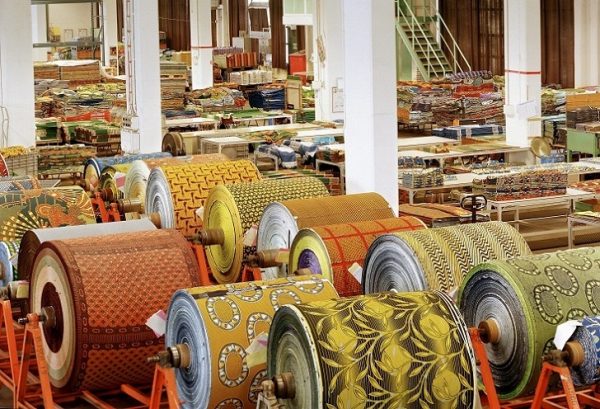Decades ago, Kaduna was referred to as the “textile city”. At the height of its manufacturing prowess, it had eight textile factories which employed about 30,000 people; other cities also churned out a sizeable quantity of fabric from several production centres. Kano is said to have had about eighteen factories with as many as 120,000 employees making material for the local and international market. Lagos had sixty such factories which engaged about 250,000. Aba, Asaba, Gusau, Funtua and Port Harcourt were also thriving spinning and ginning cities. Nigeria rivaled Egypt and South Africa for supremacy in the fabrication of textile in Africa. Those were the glory days.
These days, many of the once buoyant factories have been conquered by grass, and the old roofs of these structures have collapsed to expose the machines and material they house to the ravages of rust and rot. The North has been especially hard hit: the engines Kaduna’s fabric creating factories have ground to a halt, and many others have gone out of business in Kano. Cities in other parts of the country have not been spared by the death and decay in the sector. And there are a number of reasons for this ongoing collapse.
The town of Funtua in Katsina State is located in a cotton-growing territory. Funtua textiles is a company named after the town in which it is situated, and in its days of prosperity, it had a staff strength of about 2,500. But by 2015, this had sharply declined to about 750. The company’s head of human resource put his finger on a number of problems which had led to the downturn in the company’s business: inaccessible markets for products, obsolete machines, power problems and multiple taxations. Obviously, these difficulties have plagued the industry as a whole. And because these obstacles persist, the remnants of the industry in Nigeria continue to die a slow and painful death. While Funtua’s human resource man did not note it, the deluge of cheap foreign wear has all but driven many local producers out of business. There’s also the trouble with importing dyes and (unfortunately) cotton, as well as challenges encountered with the process of getting foreign exchange for the purchase of these inputs.
There is still great potential in the textile industry. But in order to raise the level of productivity of this part of the nation’s economic setup, the problems which have blighted it need to be addressed. The legendary trouble with inadequate power supply has to be overcome. Other things should be done too. Saidu Adhama, founder of a textile company in Kano recommended in an article written for a newspaper, that the Nigerian Customs Service and Nigeria Immigration Service should work to eliminate the dumping of substandard textile, and deal decisively with cases of foreigners doing business in Nigeria with visiting visas or fake entry documents. He also recommended the setting up of a spinning and ginnery plant in each of the six geo-political zones to serve as a springboard for cotton, textile and garment production projects in these zones. However, the infant industry argument, which he also seems to advocate, is a controversial one. It involves the placing of bans on various textile imports. The aim is to protect local industries from unfair competition from cheap imports. Despite disagreements on what the best policy to employ is in dealing with dumping, one thing is clear: Nigeria’s textile industry is too important to be left in dire straits.


